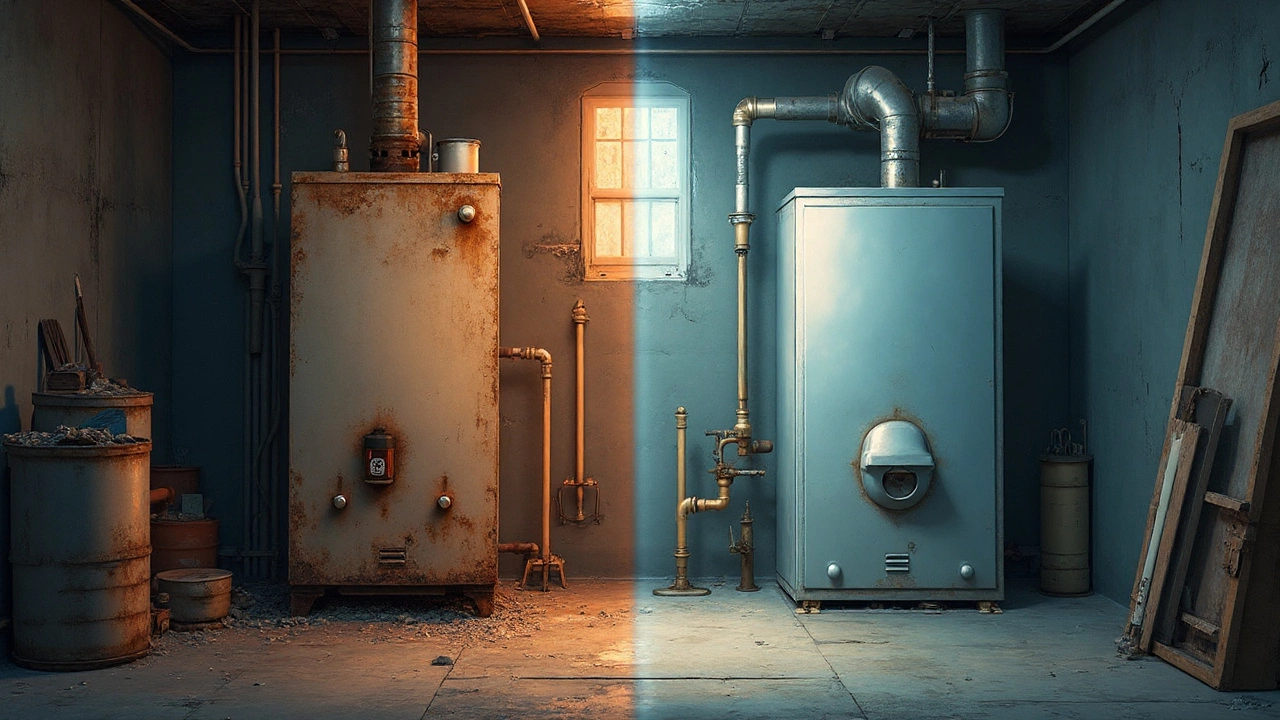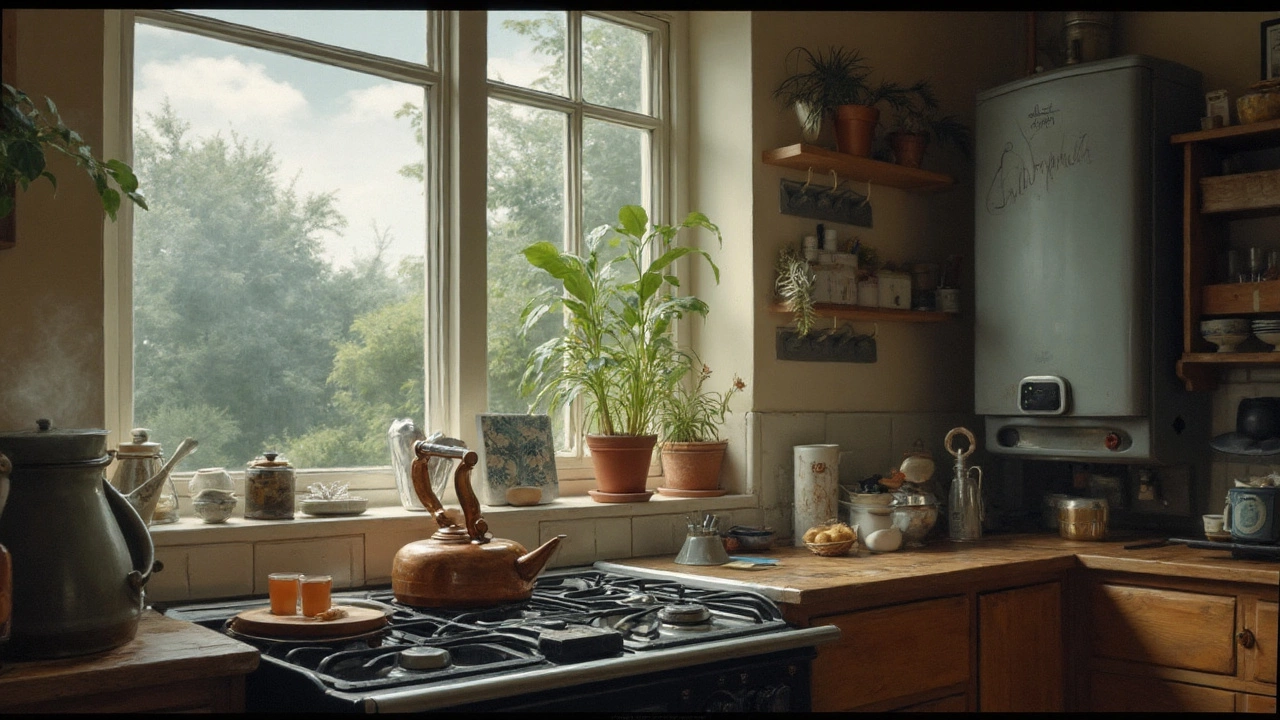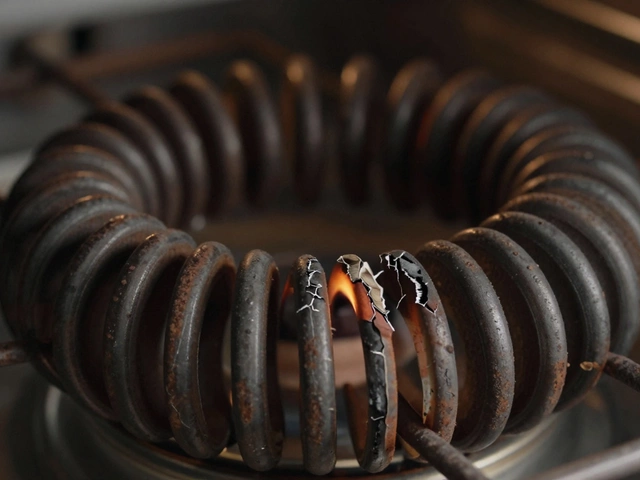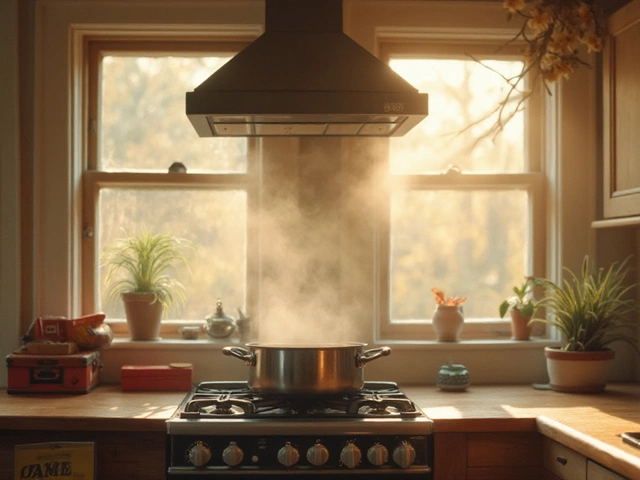Ever heard of a boiler still hissing away in a house after 40 years? It's rare, but it happens! Most people don’t think much about their boiler—until the showers run cold or the radiators decide to take a day off.
People love to argue about the best way to make a boiler last. Some folks swear that old British boilers are indestructible, others believe anything over 15 years is living on borrowed time. So, what's the truth? When should you start stashing some cash for a new one? Let’s bust some myths, dive into the real data, and get to the heart of the “boiler lifespan” mystery.
What Decides a Boiler’s Lifespan?
If you asked 10 plumbers how long boilers last, you’d probably get 11 different answers. But they’d all agree on this—maintenance, build quality, usage, and water quality decide most of it. That means two exact models in two similar homes can live totally different lives. Strange, right?
Most modern gas boilers will last about 10 to 15 years with normal use. Oil boilers usually clock out a little earlier, often at 10-12 years. Cast iron models (you know, the big old beasts you find in older homes) can chug along for 20 to 30 years—sometimes even longer if you treat them well. Electric boilers and combi boilers? They’re generally on the lower end, since their parts face more regular wear and tear.
| Type of Boiler | Average Life Expectancy (Years) |
|---|---|
| Modern Gas Boiler | 10-15 |
| Catalyst or Cast-Iron | 20-30 |
| Oil Boiler | 10-12 |
| Electric Boiler | 8-12 |
| Combi (Gas/Electric) | 10-15 |
Don’t forget about how you use it, though. If your household loves endless hot showers or you crank the thermostat up every winter, that’s tougher on the system. Boilers sitting idle for six months of the year can collect dust, rust, or worse. Ironically, regular (but not excessive) use and good maintenance are keys to a long boiler life.
Water quality has a sneaky role, too. Hard water brings minerals that build up, turning your pipes and boiler into a crusty nightmare. In Adelaide, for example, local water is medium-hard to hard. That chalky residue you see on your showerhead? It’s also inside your boiler, lowering efficiency and cutting lifespan if you don’t use softeners or descalers. If you just let the minerals build up inside, you’re basically asking for trouble.

Care and Maintenance: The Real Game Changer
Think of your boiler like a car. If you ignore it, skip oil changes, and never look under the hood, it will die young and cost you heaps. Pay attention, and you might double its life. Annual servicing is the magic bullet most people skip. It’s not just a formality so someone can slap a "Passed" sticker on the side. The pro will spot silent leaks, pressure troubles, and parts that are wearing out, long before they break. Most warranties for new boilers actually demand this annual checkup, so you might void hundreds of dollars in coverage if you slack off.
- Bleed your radiators at the start of winter. Trapped air reduces efficiency and strains your boiler.
- Check the pressure gauge monthly. Small pressure drops mean small leaks or a lazy pump. High pressure usually means blockages or a failing expansion vessel.
- If your boiler has a visible pilot light, make sure the flame is blue—not orange or yellow. A dodgy color means incomplete combustion, which is dangerous.
- Listen for rumbling, knocking, or gurgling noises. Boilers shouldn’t sound like a nightclub; odd noises usually mean mineral scale, trapped air, or failing bearings.
- Inspect exposed pipes and pressure relief valves for drips. Even tiny leaks corrode interiors fast.
If you’re in a hard water area, descaling is your best friend. You can do this yourself with a treatment kit, but it’s a messy job. Most folks get a pro in every two years who’ll flush the system out, protecting both the boiler and all your radiators. Yes, it’ll cost you, but it usually costs less than a new heat exchanger or a full replacement.
Don’t forget filters. Magnetic filters and limescale reducers are cheap to fit, and they catch rust, sludge, and gunk before the boiler sucks it all in. Some boiler makers even give extra warranty years if you prove you’ve fitted and maintained one—worth asking about when you’re getting quotes.
Around Adelaide, you’ll find boilers from a wild mix of brands—some built for European winters, others for Aussie droughts. In 2023, a local repair study showed that Vaillant and Bosch models routinely survived for over 16 years when serviced annually, while discount imports sometimes packed it in after just seven years. That should tell you something about paying more for quality and sticking to a good service schedule.

How to Spot a Dying Boiler (Before It’s Too Late)
Nobody wants to fork out thousands for a new boiler. But hanging onto an aging unit too long can leave you freezing at the worst time, or flooding your kitchen at 2am. So, what are the warning signs you shouldn’t ignore?
- Frequent breakdowns, usually once or twice a year, mean it’s probably time for a replacement. One big repair bill can quickly become several.
- Water leaks. Any persistent dripping spells trouble, especially if you can’t easily tighten a joint or valve to stop it.
- A pilot light or flame that keeps blowing out, or seems yellowish, signals a core burner or heat exchanger problem.
- Strange noises—whistling, banging, or rumbling—mean either limescale, loose parts, or imminent pump failure.
- Rising energy bills are a silent killer. If your usage habits haven’t changed but the costs are climbing, your boiler’s losing efficiency. Modern units can save up to 35% on gas compared to a 15-year-old boiler, according to Australian Gas Networks data from 2024.
- Brand parts discontinued. Once spare parts are impossible to find, you might be forced into replacement even if the machine sort of works.
One hidden killer is carbon monoxide. It’s odorless and invisible, and damaged boilers are a main source in homes. You should have a detector in any room with a gas boiler, and check the battery monthly. If you see black stains around the boiler or vents, or anyone in the home feels dizzy, confused, or ill with no clear reason—get everyone out immediately and call for help.
Sometimes it’s smarter to swap an old boiler early. The newest models are not just quieter and easier to repair, they’re up to A+++ in energy ratings and can link to smart thermostats or solar inputs. Rather than limping along with an old clunker, you get cheaper bills, greener running, and peace of mind. Plus, in most states, energy rebates and low-interest loans are on offer for replacing your system.
So, how long does a boiler last? With decent care and a little luck, 10-15 years is realistic for a modern boiler, while cast iron tanks might reach 30. But keep an eye on those warning signs, service it every year, and treat it kindly. Then you’ll stay cosy, not caught out by a cold surprise.







